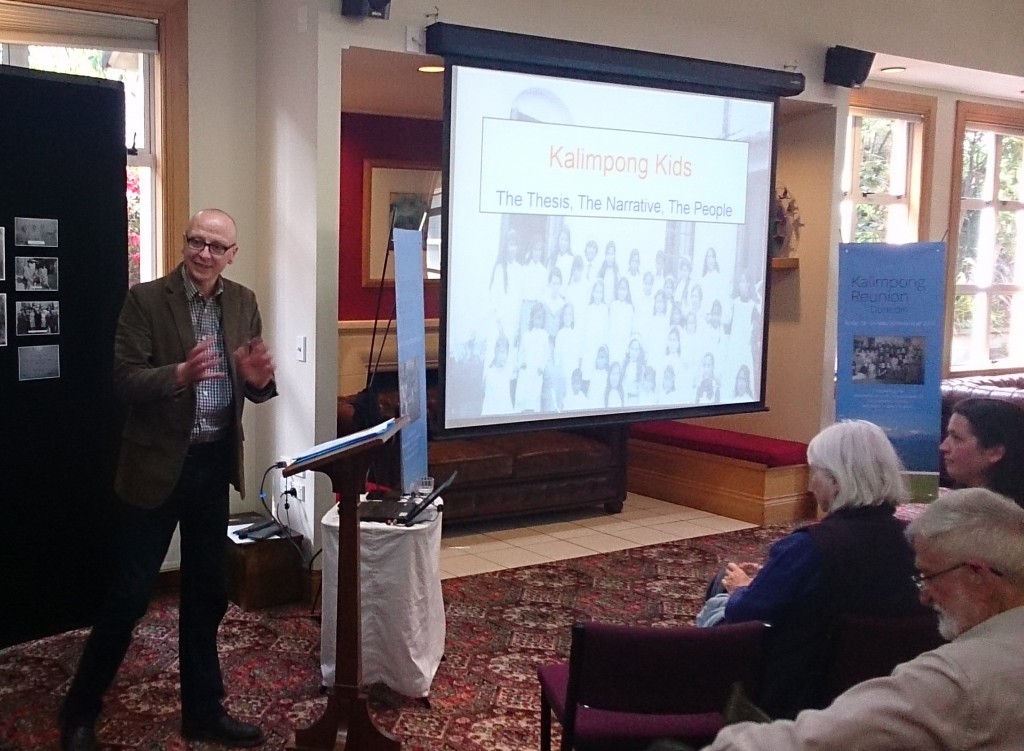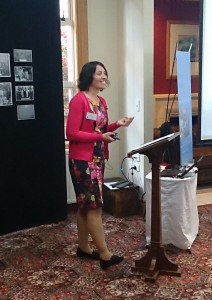Mapping Workshop
Centre member Jane McCabe has had a busy year. In May her first book was published, and officially launched the following month. It’s been well-received and getting some great media attention including a spread in the Dominion Post, as well as on the New Books Network. Jane also started a new project in February.
Rural history is at the heart of her Marsden Fast Start project entitled ‘Splitting up the Farm? A Cross-Cultural History of Land and Inheritance in Aotearoa’. In late June she hosted a mapping workshop based around that project, which was supported by the Centre for Research on Colonial Culture. The one-day workshop brought together experts in rural history, land titles and mapping to discuss best practice in use of maps and land titles in order to help Jane as she works towards the production of effective visual outputs for the project. Jane began the day with a presentation in which she set out the research questions and aims for her investigation of familial land transfer in two districts (Taieri and Hokianga) from 1870 to 1970. This helped set the framework for the workshop and focus discussion on the advantages and disadvantages of land titles for a project about cross-histones of land use and inheritance. In order to foreground the land, and attitudes to it, Jane proposed a survey of land titles/ownership to show change over time, with the aim of collating data for communication on a digital platform.
Participants discussed the value of maps in helping think about the past spatially. One inspiring suggestion was that project participants might be encouraged to draw maps of their farms so that familial and individual approaches to land use could be illuminated, thereby providing a multiplicity of voices to land use that does not rely on official maps and land titles. Personal mapping might also enable social and cultural data to be mapped that might look different to official data, detailing how families members who might not be named as owners in fact worked and used the land. Later sessions discussed land titles and their value as historical sources for mapping land ownership over time and cross-culturally.
The Centre thanks Jane for hosting this event and all the participants for sharing their expertise: Malcolm McKinnon, Michael Roche, Jonathan West, Brian Coutts, Vivienne Cuff, Michael Stevens, Hugh Campbell, Tom Brooking, Michael Stevens and Angela Wanhalla, as well as Karen Craw for kindly showcasing the Hocken’s map holdings relating to the Taieri.
The Centre has been busy hosting a number of workshops this year, and have many more on the horizon. There’s a whaling history symposium in late June 2018 in Honolulu, for instance, along with plans for an event on Māori writing in November 2018, as well as a possible workshop on rural history in late 2018. Watch this space for further details.
Finding India in Dunedin
Dr Jane McCabe will give a talk today on Dunedin’s Indian connections, specifically Kalimpong, where Dr. Graham operated an orphanage for Anglo-Indian children. Some of these children were sent to Dunedin in the early decades of the twentieth century. In the afternoon’s talk Jane will discuss the pathways and fate of these children once in New Zealand. Everyone is welcome to attend this free public event, which begins at 2pm in Toitu’s Auditorium.
Kalimpong Reunion
A reunion was held today (28/11/14) at St Margarets College of descendants of migrants from the St Andrews Colonial Homes. The Homes, now known as the Dr Graham Homes, made up a boarding school in Kalimpong (West Bengal, India) mainly for children of indigenous women and European tea planters. Set up by Reverent Dr. John Anderson Graham in 1900, this Christian school educated the “Anglo-Indian” children, some of whom as teenagers were then sent to New Zealand between 1908 and 1938. The women worked as domestic servants, and the men as farm labourers.
The “Kalimpong Kids” were the subject of Jane McCabe‘s PhD thesis in the Department of History and Art History, supervised by Professor Tony Ballantyne and Dr Angela Wanhalla, both Centre members. The Centre has also supported the reunion, organised by Jane. About 65 descendants and family are attending and they have two days of planned events ahead of them.
Jane McCabe is herself a descendant of one of the original migrants, and her research involved contacting and interviewing some of the families. Her PhD was examined recently and judged “exceptional” by the examiners. Check out her website to find out more about her work.



